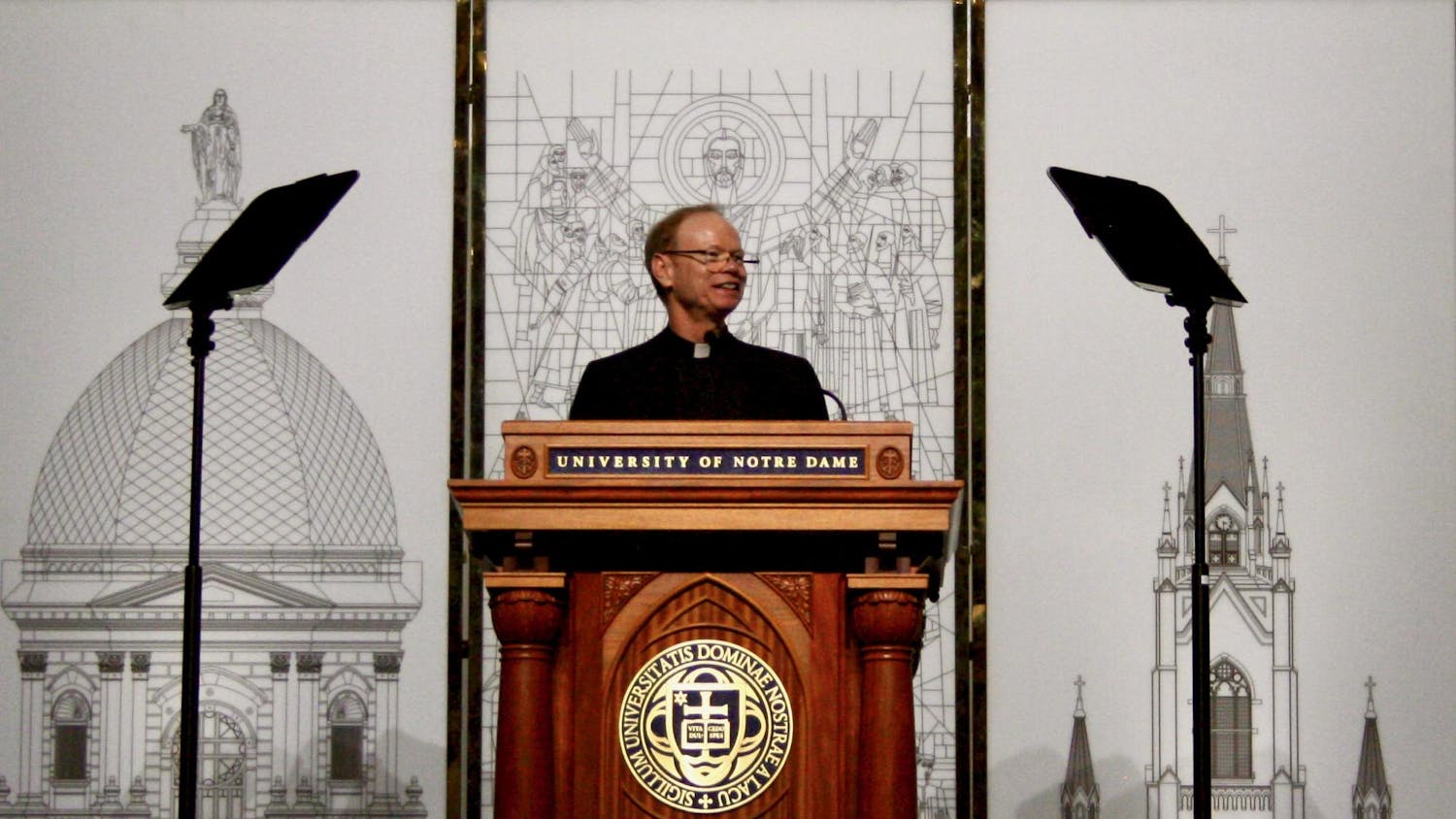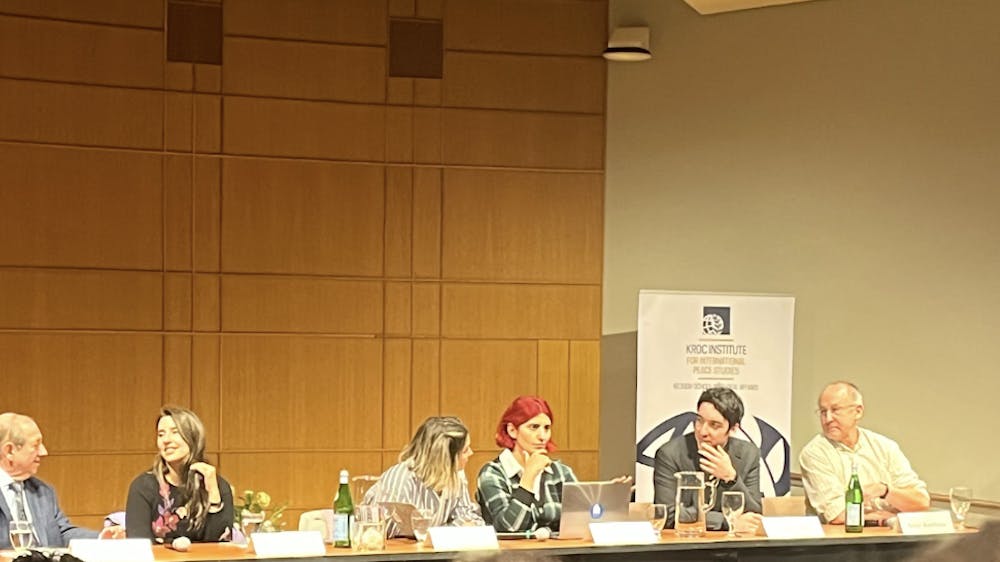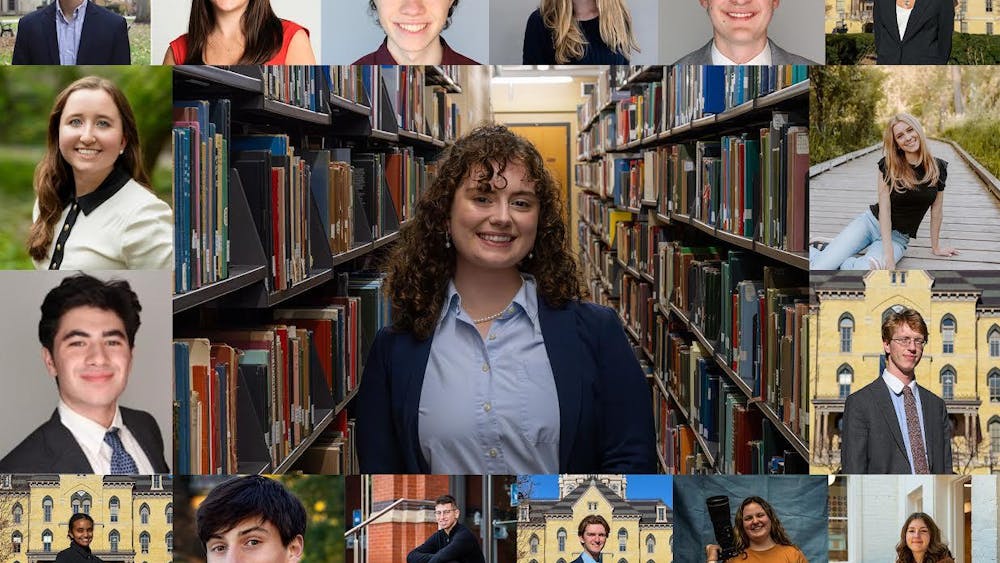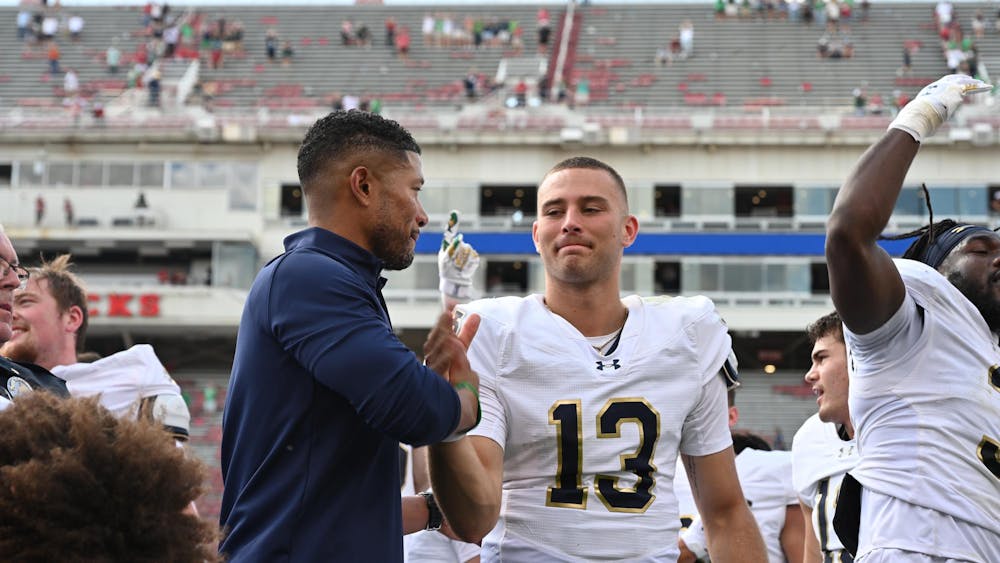Editor’s note: This is the first story in a three-part series addressing various political issues and their impact at Notre Dame one year after the 2016 election. Today’s story focuses on the current political climate and ideological divides on campus.
In the weeks following the 2016 election, in which President Donald Trump beat Hillary Clinton, many Americans took to the streets to express their anger or jubilation. Some marched with signs urging others to fight against the newly-elected administration, while others proudly displayed “Make America Great Again” paraphernalia.
Just over a year after Trump’s election, the country appears to be as politically charged as ever.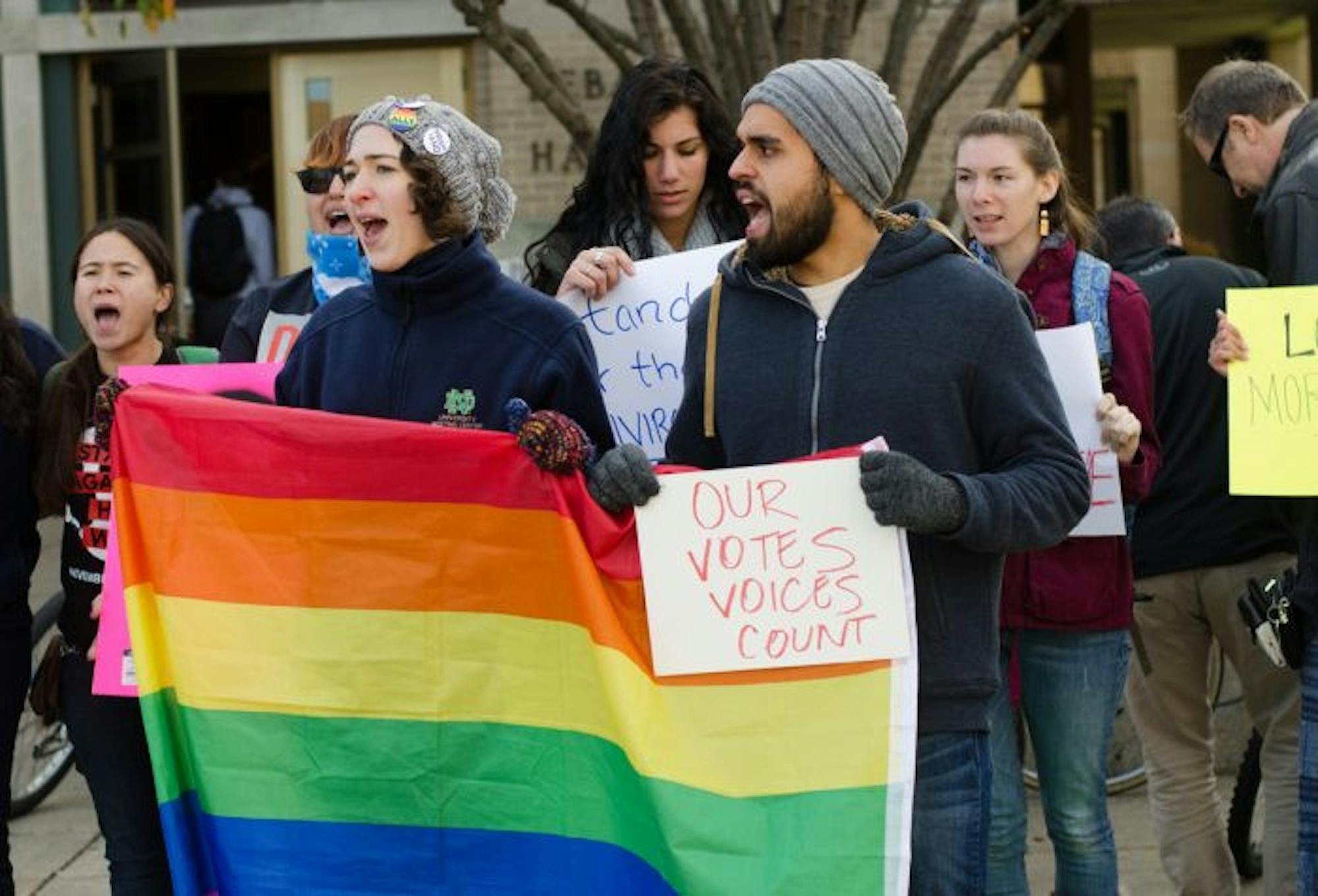
“It’s amazing, to some extent, how engaged angry people still seem to be,” professor of political science Geoffrey Layman said. “Typically what happens is in the years in between presidential elections, especially in the year right after one, is people disengage, and they pay attention to sports, family and church — stuff besides politics. But I think the level of anger and political engagement that’s around the country right now is remarkable.”
While the country works toward healing its ideological divide, Notre Dame’s campus is doing the same.
Junior Christian McGrew, president of BridgeND, said there is still an underlying tension on Notre Dame’s campus a year later due to a lack of communication between both sides of the ideological divide.
“People are walking on eggshells,” he said. “People are tense and don’t know how to talk about stuff because a lot of people still are in shock. So we need a forum and a way to be able to talk about these very difficult issues while not ignoring an opinion of a large section of America.”
Despite this tension, the feelings of panic some students felt after the election have largely dissipated. Junior Jeffrey Murphy, treasurer of the College Republicans, said while he doesn’t think students’ opinions of Trump have changed, he does sense less fear from those who disapprove of Trump and his policies.
“I think most people that hate him still hate him; I think most people that love him still love him,” Murphy said. “I think something that at least I feel like is different is … I think there’s less of an apocalyptic feeling in terms of campus energy. Obviously I would say lives have changed a ton in this presidency, but the way students are talking about it, I don’t think [it’s] as much of a doomsday event.”
Senior Emily Garrett, who wrote an open letter in response to the University administration’s initial decision to roll back contraception coverage through its health insurance providers, said she believes students have channeled any initial fear into action.
“I feel like the mood on campus back then was definitely a little bit of panic mixed with uncertainty, at least for the more liberal students,” she said. “ … We’ve kind of grown out of panic. We’re starting to respond more effectively. We’re kind of organizing more effectively than we were in the beginning. So it’s more of just an organized front against all these political attacks than the original kind of despair and fear that we felt right at the turn of the election.”
Junior Gargi Purohit, a beneficiary of the Deferred Action for Childhood Arrivals (DACA) and president of the Student Coalition for Immigration Advocacy (SCIA), said she has personally seen anger on campus become “fuel” for action.
“Right now, there’s just a lot of anger, and I think anger is good because anger fuels people,” she said. “Anger fuels people to really demand what they need. So right now, I just see a lot of justified anger from communities, and they’re using their anger to fuel them for these massive movements.”
For some students, such as junior Sabrina Barthelmes, being a student at Notre Dame has changed their political alignment. Barthelmes said she grew up in a very conservative family, but after becoming more engaged with social issues at Notre Dame, she began to rethink her priorities.
“Coming here, I realized I care a lot about the social issues, and I lean much more liberal for social issues,” she said. “I feel like now I’m actually getting the reverse, where I don’t really talk about the fiscal issues. To be honest, I know what Republicans think, I know what Democrats think, but I don’t know where I lean on that because I don’t feel knowledgeable enough to actually give an opinion.”
Whether due to a fundamental lack of communication or fear of rebuke, however, Garrett said students remain “uncomfortable” speaking openly about politics, particularly in a classroom setting.
“I think since the election, we’ve kind of marked out in our own social circles who we know would be in support of our own views and who we know is opposed to them,” she said. “ … I’m not necessarily afraid I’m going to incite a huge argument, but I’m also not comfortable touting my liberal views on the quad or anything — not that I think anyone would want to shout their political stance in the middle of a group.”
Sophomore Jessica D’Souza said she believes the “exhaustion” among students that comes as a result of such a politically charged climate has caused people to want to step back from politics altogether.
“I think that there is an exhaustion, but not in this active ‘I can’t do this anymore’ — but in the ‘I don’t care, I’m apathetic now’ [way],” she said. “And I think that’s easy for a lot of Notre Dame students because we go to Notre Dame. We do exist in this bubble. And the overwhelming majority of people do come from good backgrounds, and their day-to-day lives are not drastically changed by a lot of Trump’s policies.”
Murphy said he wishes more students would challenge each other’s beliefs and debate openly about politics. While some students felt nervous speaking about their conservative stances immediately following the election, he said, the time others have taken to listen to their arguments has contributed to some initial reconciliation between students on opposite ends of the political spectrum.
“I wish there wasn’t so much intellectual unanimity,” he said. “And I think a lot of conservative students feel very, very afraid of being openly conservative in the classroom. … [But] I think there’s less ill-placed [bad] feelings between conservatives and liberals on campus. I think people have realized that it wasn’t hate-fueled, it was a genuine difference in intellectuality or policy positions.”
On the other end of the political spectrum, Purohit said she has gained a sense of empowerment from being open about her political views and her status as an undocumented immigrant.
“I think one of the benefits of being so outspoken about it is that even if people on this campus that see you day-to-day or recognize your face don’t agree with this movement, they’re not going to come up to you and share it,” Purohit said. “It’s really hard to go up and criticize and say you don’t believe that undocumented immigrants should be in a country when you’re speaking to one.”
On the other hand, due to misconceptions surrounding the Republican party as a whole, D’Souza said she felt pressure to distance herself from those of President Trump’s views that she feels conflict with her identity as a Republican in order to be accepted on campus following the election.
“My fear was, how much harder am I going to have to fight to defend my beliefs now that someone that I think doesn’t embody them or fight for them is the person that is the representative of this party?” D’Souza said. “Because I don’t think that misogyny is a platform of the Republican party. I don’t think that bigotry has any place in it. … I don’t think that his rhetoric reflects what I believe.”
While Purohit said she is “debating on whether [she needs] to listen to the other side,” other liberal-leaning students such as Garrett are more willing to listen to and debate with students with different political beliefs. Garrett said she feels being able to do so is a vital aspect of a college campus.
“I don’t think it should be a taboo subject, because how are we ever going to learn from each other or create a common ground for other initiatives?” she said. “None of my classes have ever really been shy about addressing politics, so I’ve never developed that fear of academic discussion.”
This intelligent debate, McGrew said, is the first step toward bridging the remaining ideological divides on Notre Dame’s campus and beyond.
“There’s a wide and cognitive dissonance in American politics,” he said. “And if we’re ever going to begin to make progress, we need to first understand the other side. I think that starts with talking to people and asking questions and being curious.”
Students reflect on Notre Dame’s political climate one year after 2016 election
Erin McCauliffe
Students protest outside of DeBartolo Hall last November in response to the 2016 presidential election, in which President Donald Trump emerged victorious. Since then, student groups have continued to unite in an effort to defend rights and liberties they consider the current presidential administration to be threatening.

